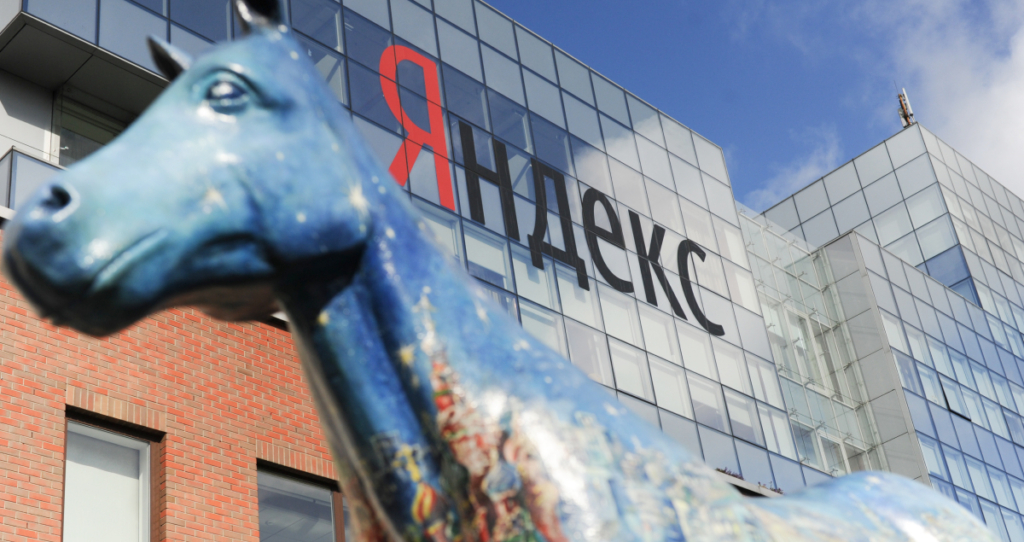
‘Deal of the year’ ends in acrimony and insult
The tie-up between Yandex – the so-called ‘Russian Google’ – and Tinkoff, one of the country’s biggest privately-owned banks, looked to be a match made in heaven. But this week it was all over – less than a month after the initial announcement. The bank said Friday that talks had broken down. Later, Oleg Tinkov, the bank’s founder, and Yandex managing director Tigran Khudaverdyan traded accusations in letters to employees. The Bell pieced together what happened.

How the deal unfolded
- Rumors about the sale of Tinkoff Bank to Yandex started circulating in the summer. This week, Yandex’s Khudaverdyan retrospectively confirmed that “Oleg [Tinkov] approached [Yandex founder] Arkady [Volozh] with a proposal to consider buying the bank in July”. But Yandex was not the only interested party. The Bell’s sources have also identified another possible bidder for Tinkoff: billionaire Vladimir Yevtushenkov, owner of cellphone network MTS, with the backing of state-owned banking giant Sberbank.
- At the end of September, details about the deal between Yandex and Tinkoff began to emerge on anonymous Telegram channels. Yandex was set to purchase 100 percent of Tinkoff’s stock, paying 50 percent in cash and the rest in Yandex shares. Then, TCS Group, Tinkoff’s parent company, announced it had agreed to sell 100 percent of its stock to Yandex for $5.5 billion. The following day, Tinkov muddied the waters, posting on Instagram that it wasn’t yet a done deal.
- Telegram was abuzz this week with speculation the deal was not going well and that Tinkoff was in talks with rival bidders, including MTS. The Bell found credible evidence this was true, and established Sberbank was ready to invest in a different buyer.
What went wrong?
- The major sticking point between Yandex and Tinkoff appeared to be that the two sides could not agree on how the bank should be managed. According to one source, Tinkov wanted to stay in charge of his business and felt the terms of the deal were “onerous”.
- Other sources said money was the issue. One source claimed that Tinkov disputed the price: Yandex was willing to pay four times the value of the capital, which is generous for a bank, but Tinkov wanted more. Many smaller shareholders were also unhappy.
- Tinkov gave weight to these theories in an emotional letter to staff, which The Bell obtained. He claimed Yandex simply wanted to buy Tinkoff, without finding any synergy, and promised that “we, not they, will buy this shitty Yandex! I have no faith in this overly bureaucratic company.”
- Khudaverdyan wrote a personal, albeit more restrained, letter to Yandex staff. According to him, Yandex made repeated concessions but new demands kept coming. He said he wasn’t surprised when Tinkoff announced it was withdrawing from the deal.
What next?
For the sector This doesn’t necessarily mean the deal will never go ahead — but certainly not anytime soon (Yandex is barred from making a new offer for TCS Group in the next six months). Despite expressing public regret over the failed deal, Sberbank head German Gref might actually be pleased: the merged company would have been a serious rival for his bank. Yandex has pledged to develop its own fintech arm without Tinkoff, but that will take time.
For Oleg Tinkov The businessman is currently in London recovering from leukaemia. He faces a new court hearing next month over his extradition to the U.S. on tax evasion allegations. Lawyer Alexander Zakharov estimated that Tinkov could incur a fine of $500 million, which indicates the businessman might need to find some cash in a hurry.
Earlier this year, Tinkov distanced himself from the management of the bank and even transferred his shares to a family trust. Now, it has been revealed that he remains the main decisionmaker.
Why the world should care When we talk about the deal of the year, these are not empty words. Tinkoff and Yandex are rare phenomena on the Russian market: both grew without the involvement of the state, are traded on international exchanges and used by millions of Russians. As a rule, almost all big Russian business stories end with someone in jail — again, Tinkoff and Yandex are exceptions.




